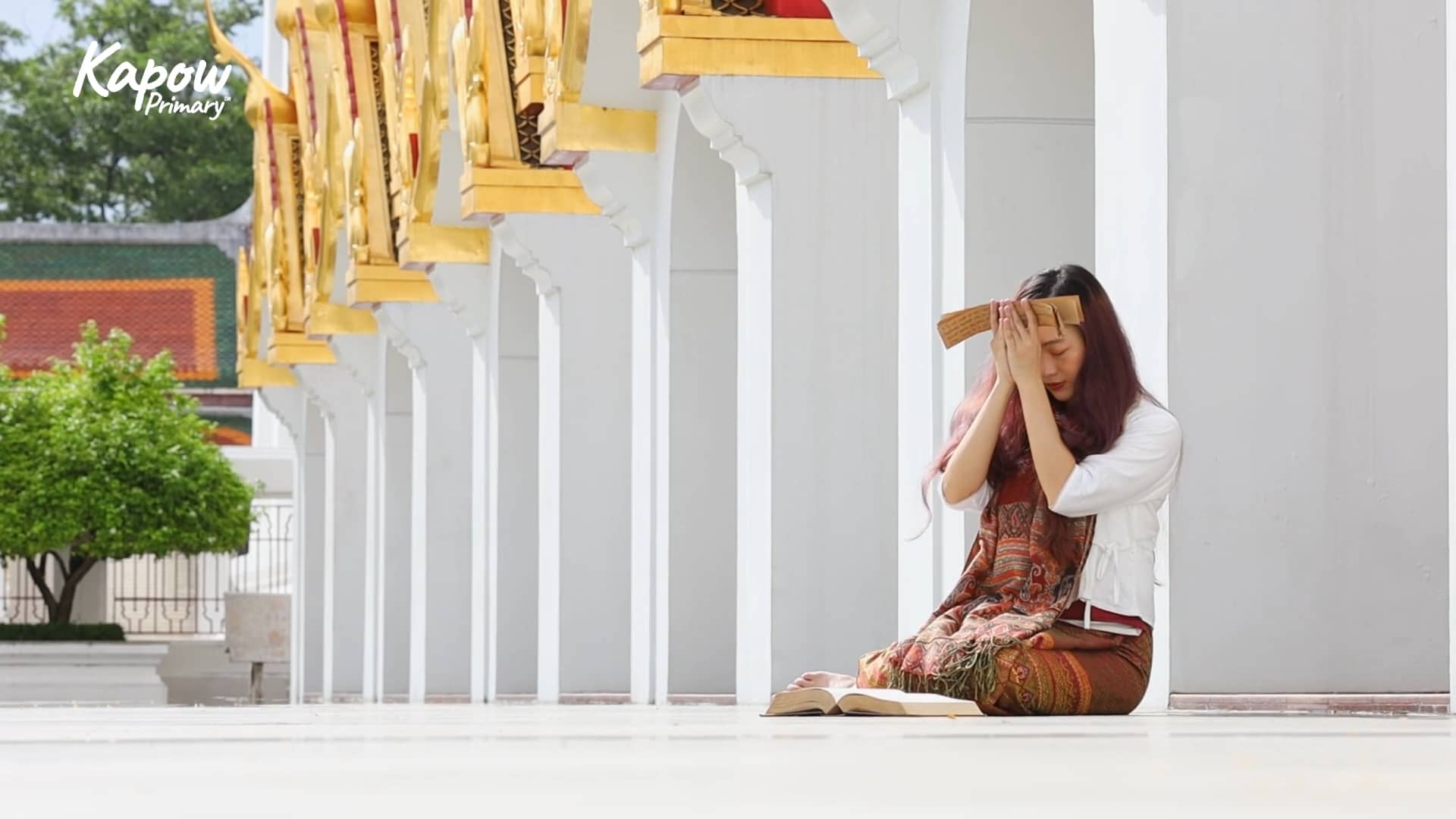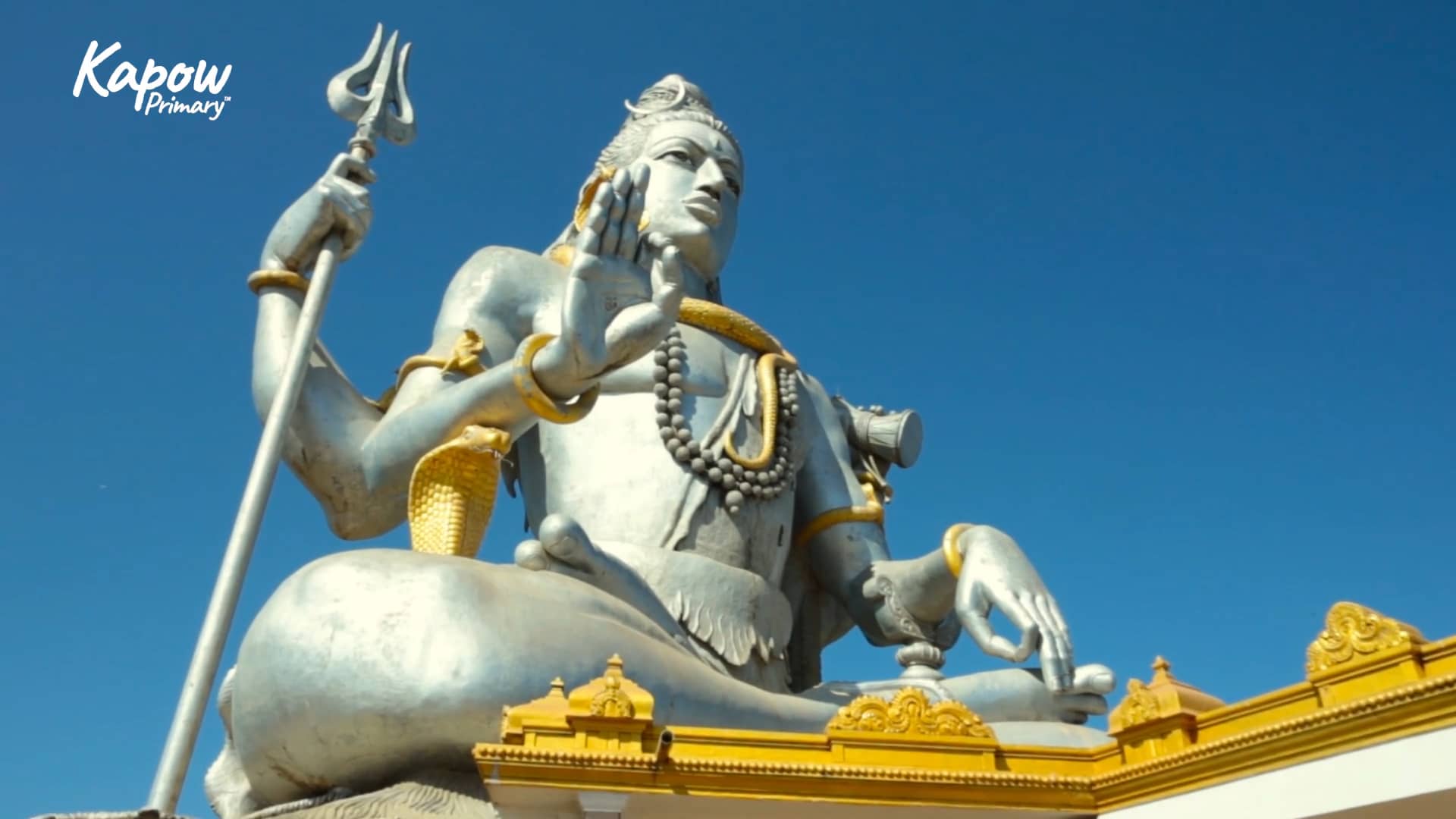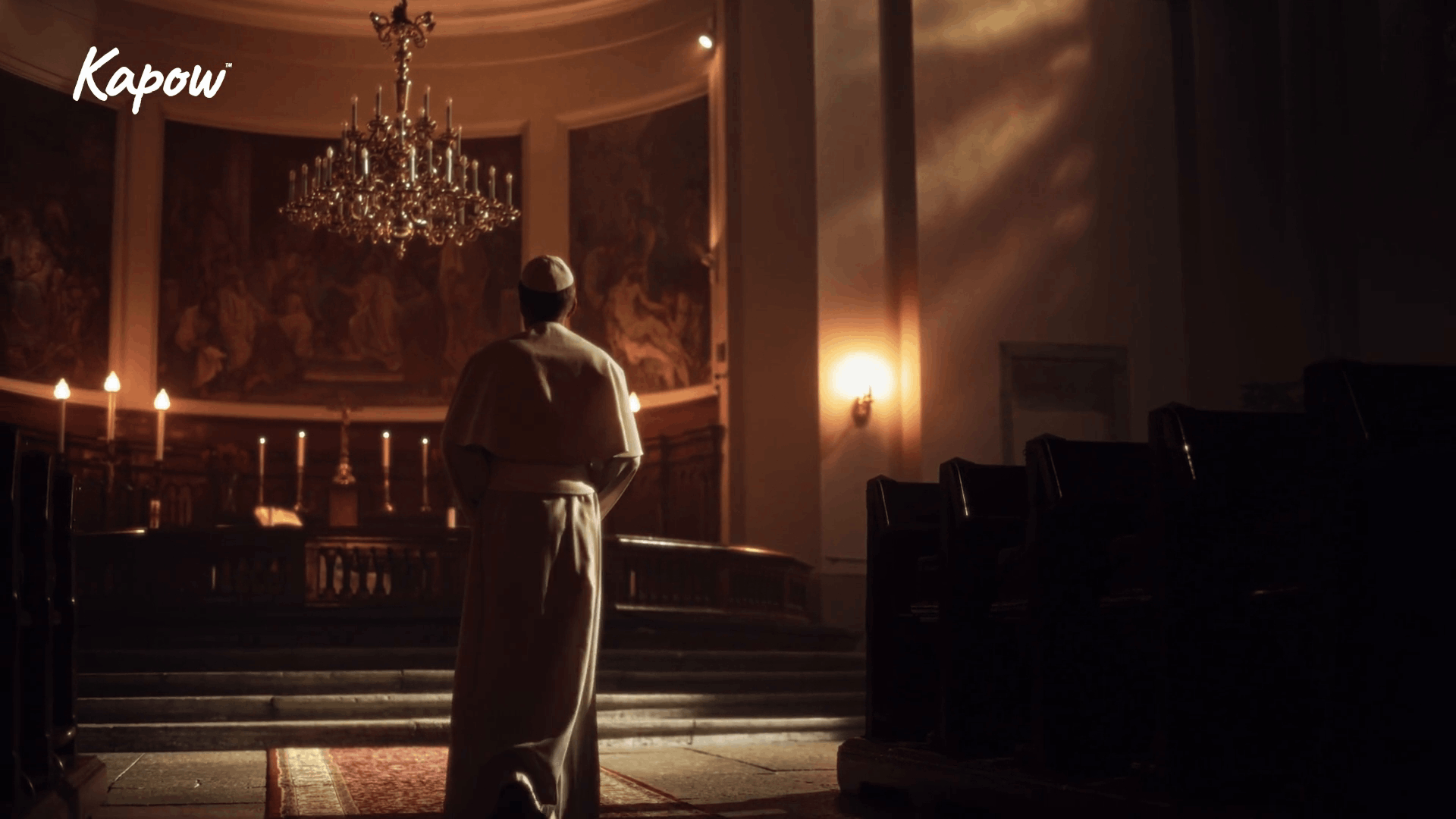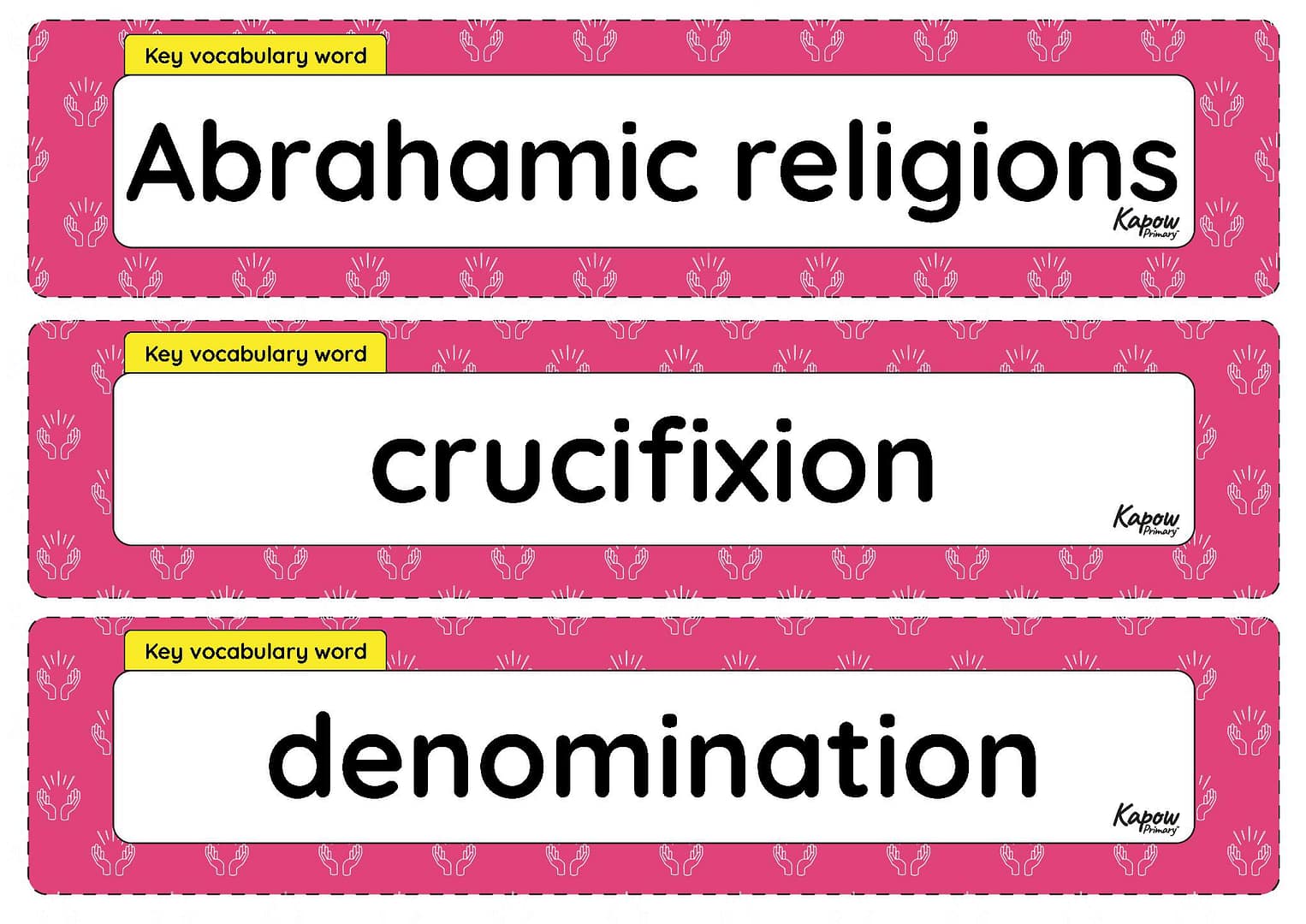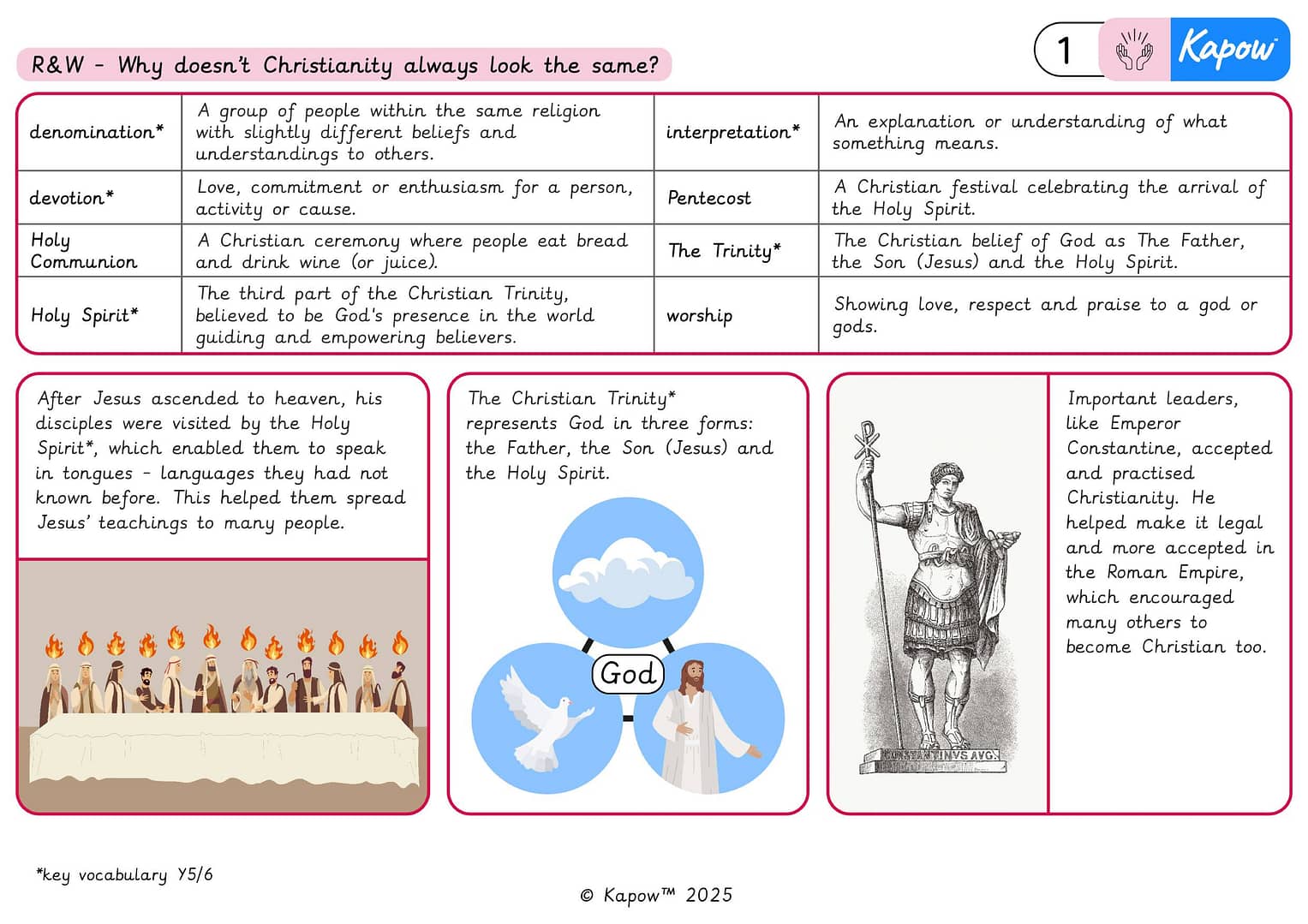year: Year 6
Teacher video: Buddhist scripture
This Religion and worldviews video introduces key beliefs and practices linked to Buddhist scripture.
Teacher video: Hindu scripture
This Religion and worldviews video introduces key beliefs and practices linked to Hindu scripture.
Teacher overview video: Remembrance
This video introduces teachers to Kapow Primary’s Whole school Remembrance collection, ensuring teachers feel prepared to guide children in learning about remembrance with sensitivity and purpose.
Teacher video: Christian denominations
This Religion and worldviews video introduces teachers to the concept of Christian denominations how they emerged through interpretations of the Bible, belief and practice.
Teacher video: Y5/6 – Why doesn’t Christianity always look the same?
This Religion and worldviews video introduces teachers to the diversity within Christianity, the history and different interpretations of the Bible.
Vocabulary display – R&W Y5/6 (B): Why doesn’t Christianity always look the same?
This unit vocabulary display includes keywords from the mixed-age unit Religion and worldviews, Y5/6 (B), Why doesn’t Christianity always look the same? and additional unit-specific words that may be helpful in a display.
Key vocabulary is clearly labelled on the display, highlighting essential words that the pupils are expected to retain and reuse in future units. Understanding these words enhances comprehension of the subject and supports understanding of prominent organised worldviews.
See the full Religion and worldviews: Progression of key vocabulary.
Knowledge organiser – R&W Y5/6 (B): Why doesn’t Christianity always look the same?
Pupil video: Earth’s big challenges
Illustrating some of the earth’s environmental challenges.


